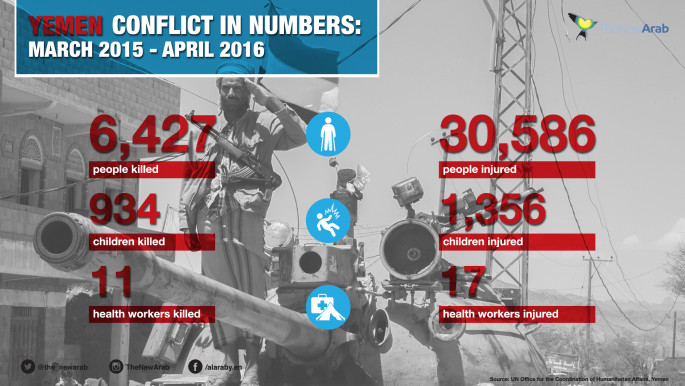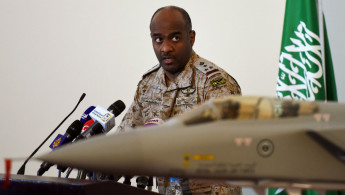Saudi-coalition blames intensified airstrikes in
Yemen on Houthi rearmament
A senior Saudi official said the Houthi rebels – who have been battling the Arab coalition since March 2015 and were present at the fruitless three-month-long Kuwait-based negotiations – were buying time to remobilise, adding that they do not possess a political framework for the conflict.
"They were deceiving people by this negotiation, to re-organise their force, re-supplying their forces and getting back to fighting. They don't have any political agenda," Saudi Brigadier General Ahmed Assiri, the coalition's spokesman said on Tuesday.
He confirmed the Arab coalition would continue to do "whatever it takes" to restore security in the conflict-ridden country, after more than two years of military bombardment, asserting the operation was "for national security, for (the) stability of the region".
Assiri added the rebels had violated the April 11 ceasefire –that began a week before the launch of the peace talks in Kuwait – "since day one".
The coalition was therefore forced to provide "reactive" air support to government forces as the talks continued in Kuwait, he claimed.
Since the collapse of the talks, intense coalition air raids bombarded several positions across Yemen, in particular the rebel-held capital Sanaa.
In recent weeks, civilian casualties have continued to mount, with the UN recording 272 deaths and 543 injuries in the four months between April and August 2016, including strikes on schools and hospitals in the past four days.
The Saudi-led coalition said it had launched an "independent" investigation into "reports" of an airstrike on a hospital in Yemen which Doctors Without Borders (MSF) said killed 11 people, following condemnation by key-ally, Washington.
Republican Senator Rand Paul told Foreign Policy last week that he would work with a bipartisan coalition to stop a $1.15 billion weapons deal with Riyadh that includes the sale of 130 Abrams battle tanks, 20 armoured vehicles, and other military equipment.
"Saudi Arabia is an unreliable ally with a poor human rights record," said the Kentucky Senator.
"We should not rush to sell them advanced arms and promote an arms race in the Middle East."
On Tuesday, Houthis responded with one of the deadliest episodes of cross-border shelling that left residents in the Saudi city of Najran in a state of panic after seven civilians were killed.
The Houthis overran the capital in late 2014 before moving into other parts of Yemen, prompting Saudi Arabia to form an Arab coalition to launch a military campaign in an attempt to reinstate the government of Abdrabbuh Mansour Hadi.
More than 6,400 people have been killed since the intervention began, the majority of them civilians, and there has been growing international pressure for an end to the "humanitarian catastrophe" in Yemen.





 Follow the Middle East's top stories in English at The New Arab on Google News
Follow the Middle East's top stories in English at The New Arab on Google News
![Both Hamas and the Palestinian Authority welcomed the ICC arrest warrants [Getty]](/sites/default/files/styles/image_330x185/public/2024-11/GettyImages-2178351173.jpg?h=199d8c1f&itok=TV858iVg)

